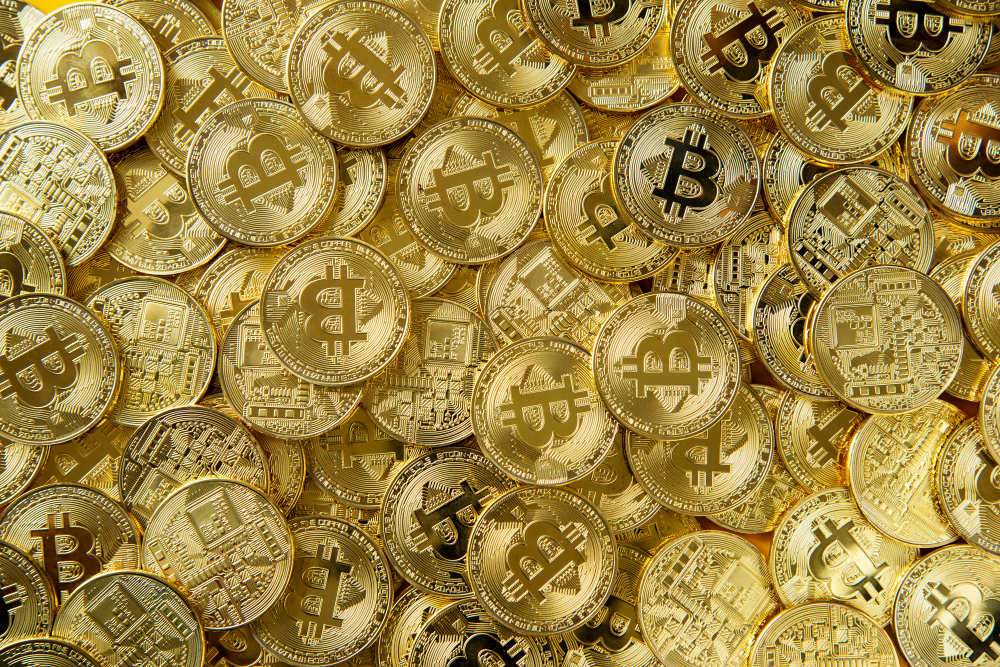The Rise of Digital Gold: Is Bitcoin the Future of Value Storage?
Has Bitcoin already become as reliable a store of value as gold? Check out a full analysis on the topic. See more.
Is it Possible to Compare Bitcoin to Gold?
The growth of cryptocurrencies in recent years has sparked difficult discussions about the future of money, financial security, and value storage.
Often referred to as “digital gold,” Bitcoin has been pointed to as a possible alternative to traditional ways of storing wealth.

But is it really the future of value storage?
Programmed Scarcity and Similarity to Gold
Bitcoin’s main similarity to gold is its scarcity. We know that gold is a limited natural resource, with extraction becoming increasingly expensive and rare.
Bitcoin works the same way, with a maximum supply capped at 21 million units. This means that unlike the U.S. dollar or other fiat currencies, it cannot be issued infinitely.
This built-in limitation creates a sense of predictability and protection against inflation.
During times of expansionary monetary policies, like those after the 2008 financial crisis and during the COVID-19 pandemic, many Americans sought assets that wouldn’t lose value due to money printing.
Bitcoin, with its scarcity guaranteed by code, emerged as a natural candidate for that role.
Decentralization and Censorship Resistance
Bitcoin is decentralized by nature, unlike bank accounts, investment funds, or even physical gold.
It doesn’t rely on intermediaries, and it is managed by a global network of computers, with transactions recorded transparently and immutably on a public ledger—the blockchain.
This decentralization offers extra protection against seizure, censorship, and institutional failure. In countries with unstable financial systems, Bitcoin can represent a safer alternative.
Volatility: Bitcoin’s Achilles’ Heel
Despite the strong arguments in its favor, Bitcoin still faces serious challenges to be unanimously considered a reliable store of value.
The biggest one is its volatility. Unlike gold, which tends to fluctuate gradually, Bitcoin’s price can rise or fall by double-digit percentages within hours or days.
This instability deters many conservative investors who prefer more predictable assets. Additionally, it makes Bitcoin less attractive as a day-to-day currency, despite growing advancements in crypto payment solutions in the U.S.
Institutional Adoption and Changing Perceptions
The entrance of institutional investors into the crypto market has made Bitcoin more relevant—especially with companies like Tesla, MicroStrategy, and several major investment funds embracing it.
Brokerages such as Fidelity and platforms like PayPal have also made access to Bitcoin easier for the general public.
This adoption plays a crucial role: by legitimizing Bitcoin, these institutions help reduce the stigma that it’s only a speculative asset or a tool for illegal activity.
Bitcoin vs. Gold: A Direct Comparison
While Bitcoin is often compared to gold, it’s important to highlight their fundamental differences.
Gold is tangible, widely recognized, and has served as a store of value for thousands of years. It is highly liquid, and its stability is well-tested.
Bitcoin, on the other hand, offers modern advantages: ease of transport, divisibility, traceability, and digital storage.
It’s also far more accessible to younger generations who were born into a digital world.
The key question is not whether Bitcoin will replace gold, but whether it can coexist as a contemporary alternative.
The Role of Regulation in Bitcoin’s Future
For Bitcoin to fully establish itself as a long-term store of value, clear and effective regulation is essential—a natural step for something so impactful.
In the U.S., the Securities and Exchange Commission (SEC) and other regulatory bodies have been working to fit Bitcoin into existing legal frameworks while recognizing its innovative nature.
Balanced regulation can provide more security for investors, prevent abuse, and help solidify cryptocurrencies as part of the American economy.
On the other hand, overly restrictive regulation could stifle innovation and hold back the progress the industry has made.
Conclusion: A New Paradigm in the Making
Bitcoin is not yet a stable store of value like gold, but it’s on its way to becoming a key player in the new global financial landscape.
In the U.S., where innovation, economic freedom, and financial security are hot topics, Bitcoin is establishing itself as a viable option—especially among younger, tech-savvy individuals.
The next decade will be crucial to determine whether it will solidify as a true store of value or remain just another chapter in the evolution of money.
For now, the rise of “digital gold” is well underway.





